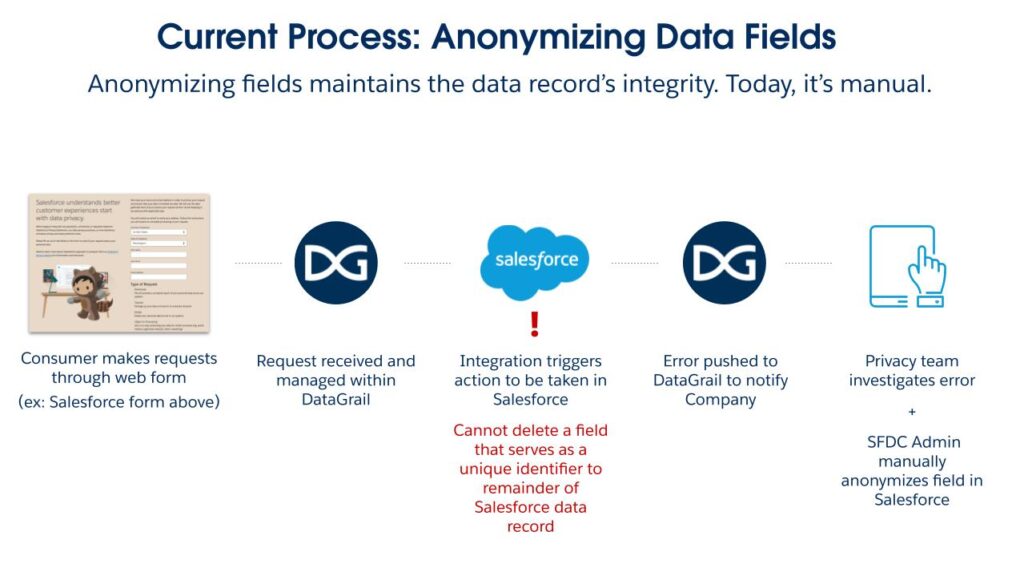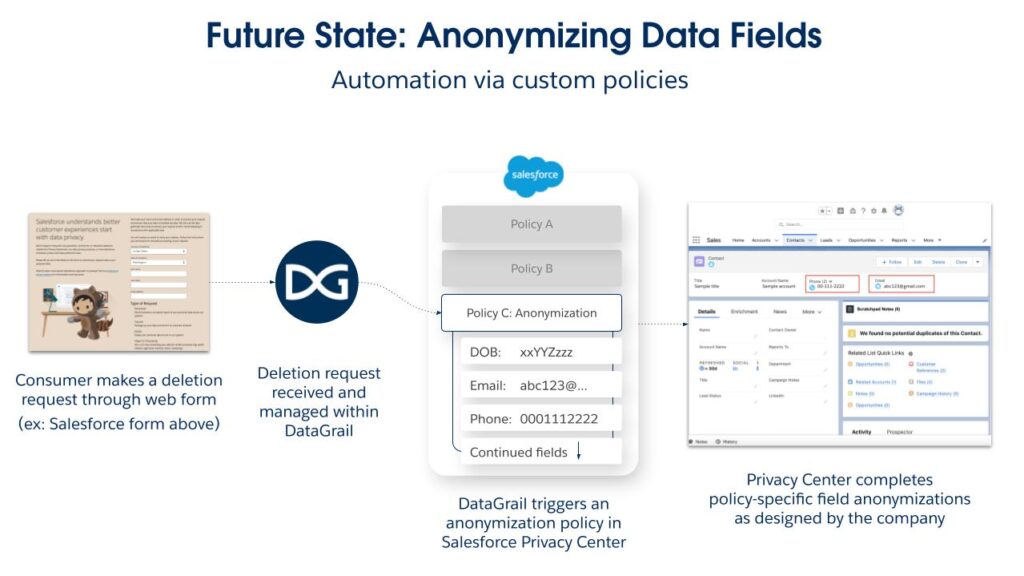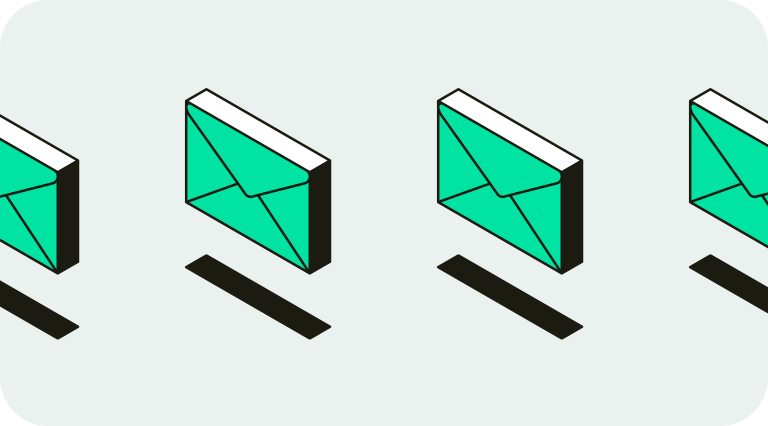DataGrail’s Dreamforce 2022 Session Recap
Between the labor shortage, an economic slowdown, and higher customer expectations, more is being asked of IT and legal teams than ever before. On top of all that, these teams are also dealing with the evolving data privacy laws that regulators are doubling down on, but with little support.
This means organizations are seeing more integration issues with their tech stack, security breaches, and privacy concerns. These problems can lead to negative, less customized experiences for their customers — and inefficiencies, faltering trust, less revenue, and even financial penalties for the business.
One of the most practical solutions to these challenges today is giving organizations access to tools with built-in trust and efficiencies that ensure the highest levels of security.
Automation & Privacy with Salesforce
When thinking about solutions that help organizations be more efficient and connect more easily with customers, Salesforce is often the first one that comes to mind. Salesforce customers use its platform to automate and streamline complex tasks, build and operate apps, and secure and activate data in real time.
Salesforce’s investment in privacy tools reiterates the moment we’re in — one where consumers are demanding more transparency from the brands they interact with.
In this wave of new regulations, Salesforce has been building its Privacy Center to help its customers keep up with privacy compliance. End users expect companies to delete data regularly, limit how they use stored data, and keep it under lock and key unless given explicit permission to share or sell that data. Implementing Privacy Center will be critical for Salesforce customers to maintain compliance and scale with trust.
Add the ability to automate some truly nuanced tasks, and you’ve got a holistic privacy solution that will help organizations meet even the steepest customer expectations.
Enter DataGrail.
During Dreamforce 2022, DataGrail CEO and Co-Founder Daniel Barber took the stage with Suzie Smelyansky Compton, Senior Director of Product Management at Salesforce, to share how the two companies are working together to provide the ultimate solution for privacy.
According to Smelyansky, “No one knows Salesforce’s data architecture better than Salesforce. But we’re just one tool. DataGrail is the partner for everything else.”
Salesforce & DataGrail: The Ultimate Privacy Solution
The foundation for a tightly integrated privacy solution was laid in years past. Salesforce has been familiar with DataGrail as a customer, and the existing product integration powers mutual customers’ privacy programs. The companies share a deep understanding of what a holistic privacy solution will look like in the future.
As a next iteration, the two teams realized there was a need for more nuanced control over consumer data stored in Salesforce, through DataGrail.
The most commonly requested use case is in support of deletion requests. Companies that receive deletion requests from consumers often delete some of the personal data fields, but anonymize others that maintain the integrity of the record. For example, a company will need to maintain a financial record for accounting practices. But deleting an email address could break the data relationship necessary to meet that obligation. This is where anonymization comes in.
Choosing which fields to delete versus anonymize is specific to each company and is hard to do at scale. Here’s a quick peek (from our Dreamforce presentation) at what that process looks like for customers today:
As DataGrail began talking to Salesforce about Privacy Center, we saw an opportunity to help customers solve this significant challenge, and many similar use cases that mandate finer levels of control over consumer data. This is why we’re now working to grow the Salesforce x DataGrail integration capabilities even further. In the near future, a joint solution will look more like the below.
More specifically, this means a few things for organizations using DataGrail’s integration with Salesforce Privacy Center. They’ll be able to:
- Create custom policies at the object and field level
- Implement anonymization in place of deletion
- Automate access and deletion requests
Compared to the manual process outlined above, this is the process customers can expect once the enhanced integration is finalized:
The Future of Privacy
Data privacy laws are quickly evolving. The ones that already exist give an organization’s customers the right for their data to be restricted from processing. And laws like CPRA, the regulation expanding privacy rights for California residents, is an example of legislation becoming even stricter.
Simplifying processes will help organizations more easily maintain compliance with these complex regulations and build trust with their customers.
The best solutions help organizations comply with privacy regulations and minimize risks through automated processes. This alleviates the time and headaches associated with manual work, not to mention the human errors that can result in noncompliance and possible penalties.
Salesforce and DataGrail are the leaders in privacy, and we’re now working together to offer a proactive, cohesive data privacy program that’ll help organizations solve these important challenges, both today and in the future.



